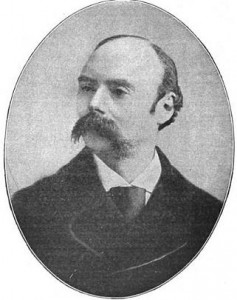Robert Heller (William Henry Palmer)
Birth Date: August 19, 1829 (Canterbury, England)
Death Date: November 25, 1878 (Philidelphia)
Info: Robert Heller, born William Henry Palmer in Canterbury, England, was inspired to pursue a career as an illusionist after seeing a performance of French master magician Jean Eugène Robert-Houdin. Heller traveled to New York in the summer of 1852 to begin his North American shows, which, as time went on and he perfected his tour, won him the kind of financial success and publicity only matched by certain rival magicians such as the Herrmann Brothers and John Henry Anderson.
Heller, a talented, classically trained pianist, always received rave reviews for the musical portion of his shows, which, as early as 1862 in Hamilton, Ontario included the performance of vocalist Miss E. A. Marsh. However, he did not become truly renowned for his magical entertainment until 1864 when he met Edward Hingston (a manager who had engineered success for Anderson, Artemus Ward and others). Heller’s signature magic act was “Second Sight,” in which his sister, though blindfolded on stage, could verbally describe any object from the audience her brother gazed upon. The magician travelled back and forth between North America and Europe, performing in the British Isles (1873-1876), in New York (November, 1876), in England (1877) and, finally, back to America in 1878. He performed various stage illusions such as the “Indian Basket Trick,” “The Inexhaustible Bottle,” and “The Mysterious Hat” (a version of Joseph Hartz’s “The Devil of a Hat”), which are all listed in an 1877 Boston review of one of his last appearances before his death the very next year. That same 73 consecutive day production resulted in a Boston record for magic shows: $45,000 in receipts ($20,000 of which Heller received). In 1913, a magic periodical, The Sphinx, published an homage to Heller as well as an anecdotal poem the magician would recite for his audiences:
“Shakespeare wrote well,
Dickens wrote Weller,
Anderson was—
But the greatest is Heller.”
